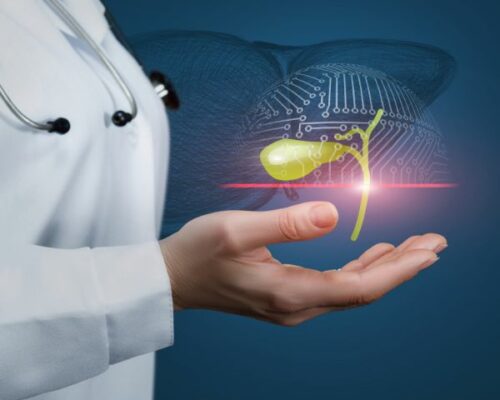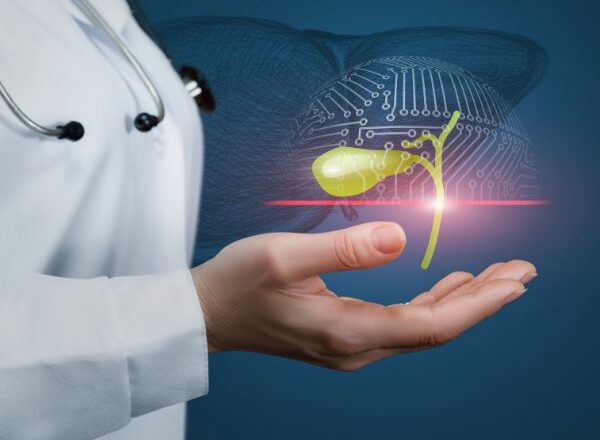What do parents need to know about stomach inflammation in children?
Discover the causes, symptoms, and treatment options for stomach inflammation in children. Learn how early diagnosis can ease discomfort and improve your child’s well-being.
What do parents need to know about stomach inflammation in children?
Discover the causes, symptoms, and treatment options for stomach inflammation in children. Learn how early diagnosis can ease discomfort and improve your child’s well-being.

What is stomach inflammation?
Stomach inflammation in children, also known as paediatric gastritis, can lead to recurrent abdominal pain (RAP). The key characteristic of RAP is a minimum occurrence of three episodes within three months, accompanied by a disturbance in the child’s ability to engage in daily activities due to stomach pain. Usually, RAP is functional and nonorganic, meaning it has no identifiable physical cause. However, around 5-10% of cases may have an organic origin.
Understanding this condition is crucial for timely recognition and treatment. Accurate diagnosis can differentiate between RAP’s functional and organic causes, helping with the right management and intervention. Finding and treating issues below the surface early on helps reduce discomfort, stop complications from developing further, and improve your child’s quality of life.
What is stomach inflammation?
Stomach inflammation in children, also known as paediatric gastritis, can lead to recurrent abdominal pain (RAP). The key characteristic of RAP is a minimum occurrence of three episodes within three months, accompanied by a disturbance in the child’s ability to engage in daily activities due to stomach pain. Usually, RAP is functional and nonorganic, meaning it has no identifiable physical cause. However, around 5-10% of cases may have an organic origin.
Understanding this condition is crucial for timely recognition and treatment. Accurate diagnosis can differentiate between RAP’s functional and organic causes, helping with the right management and intervention. Finding and treating issues below the surface early on helps reduce discomfort, stop complications from developing further, and improve your child’s quality of life.

What causes stomach inflammation in children?
Infections
Bacterial infections, particularly Helicobacter pylori, and viral infections like rotavirus can lead to paediatric gastritis in children.
Medications
Frequent use of nonsteroidal anti-inflammatory drugs (NSAIDs) or antibiotics can irritate the stomach lining, contributing to gastritis.
Dietary factors
Consumption of spicy or acidic foods, or excessive caffeine can aggravate paediatric gastritis in children, leading to discomfort.
Stress
Emotional stress or mental trauma may trigger or worsen paediatric gastritis, impacting a child’s gastrointestinal health and comfort.
Allergies
Food allergies or intolerances can cause paediatric gastritis, leading to symptoms such as pain, nausea, and vomiting in children.
Autoimmune conditions
Autoimmune disorders may lead to gastrointestinal inflammation of the stomach lining, affecting children with specific autoimmune issues.
How do children’s digestive systems differ from adults?
The digestive system of children is quite different from adults, showing their special growth stages and food requirements. These differences make them more prone to specific problems or illnesses related to the digestive tract. Knowing these changes is important for givingproper care and handling issues related to digestion health in children.
Immature digestion enzymes
This reduces the duration and severity of symptoms and minimises the potential for complications.The enzymes for digestion in children are not as developed as those found in grown-ups. This can hamper the process of breaking down and taking up nutrients, possibly causing digestive unease along with other complications.
Smaller stomach capacity
Children have smaller stomach capacities, so they feel full quickly and may be sensitive to dietary changes. As a result, they may become satiated sooner than adults and experience greater discomfort from irritants or certain foods.
Increased gastrointestinal sensitivity
Due to their gastrointestinal tracts being more sensitive, children tend to experience functional episodes of abdominal pain, inflammation and discomfort. This heightened sensitivity can be triggered by stress or dietary factors.
Developmental variability
As children’s digestive systems develop, they experience variations in motility and function. These developmental changes can contribute to gastrointestinal disorders like irritable bowel syndrome (IBS) or functional dyspepsia.
Immature immune system
Children’s immune systems are still maturing and developing, which can make them more susceptible to infections and inflammatory gastrointestinal conditions that affect the digestive tract, leading to more frequent issues.
Food habits
Children often have distinct eating habits in comparison with adults, such as higher consumption of certain foods and less dietary variety. These habits can impact their digestive health and contribute to gastrointestinal issues.
What gastrointestinal problems may be linked to paediatric gastritis in children?
Functional abdominal pain (not otherwise specified)
This is the most common condition among children with abdominal pain disorders, accounting for 53.8% of cases. It involves recurrent abdominal pain without an identifiable cause, often linked to paediatric gastritis.
Irritable bowel syndrome (IBS)
IBS affects 38.5% of children with abdominal pain disorders. It is characterised by symptoms such as abdominal pain, bloating, and changes in bowel habits, which can be exacerbated by paediatric gastritis.
Functional dyspepsia
This is present in 7.7% of children with functional abdominal pain disorders. Functional dyspepsia involves discomfort or pain in the upper abdomen, often linked to inflammation of the stomach lining.
How can you recognise symptoms in children?
Symptoms of gastrointestinal problems in children can often manifest differently compared to adults. Children may not always be able to articulate their discomfort or describe symptoms clearly, so parents and caregivers need to be vigilant and observant.
Abdominal pain and discomfort
Children might exhibit behavioural changes such as increased fussiness, crying, or withdrawal from activities. They may clutch their abdomen or have trouble sleeping due to discomfort.
Nausea and vomiting
Children might show symptoms of nausea through refusal of food, excessive drooling, mood swings, or irritability. Vomiting may be more frequent and accompanied by signs of distress.
Loss of appetite
A decrease in appetite in children can be observed through reluctance to eat, refusing favourite foods, or significant changes in eating patterns. Weight loss may also be a concern.
Bloating and gas
Children may express bloating through complaints of a “full” feeling or show signs of discomfort and restlessness. They might also pass gas more frequently or appear visibly uncomfortable.
Diarrhoea or constipation
A change in bowel habits can be noticeable through changes in stool consistency or frequency, shifting between episodes of diarrhoea or constipation which can cause abdominal discomfort.
Fatigue and general malaise
Children experiencing gastrointestinal issues may become tired, have reduced energy levels, or seem lethargic. They might also exhibit decreased interest in activities they usually enjoy.
Non-abdominal pain symptoms
48% of children may experience symptoms outside the gastrointestinal system, such as muscle aches or joint pain and can be linked to stress or inflammation affecting the child’s body.
Headaches
Children experiencing gastrointestinal issues may become tired, have reduced energy levels, or seem lethargic. They might also exhibit decreased interest in activities they usually enjoy.
Understanding these signs and recognising them early is crucial for timely intervention and effective management of gastrointestinal problems in children.
What is the diagnosis process and when is it time to see a gastrointestinal specialist?
The initial stage of diagnosing inflammation in the stomach of a child usually involves complete clinical evaluation. This comprises a collection of detailed past medical records and conducting physical examination to understand the symptoms, how long they have been present, as well as any facts that are linked to their health conditions. The doctor will evaluate the general welfare and growth development of your kid to direct the next diagnostic measures.
Abdominal radiography may be utilised to diagnose structural issues such as obstruction or constipation. This imaging technique provides a clear view of the abdominal organs and helps identify any abnormalities contributing to inflammation.
In addition, abdominal ultrasonography can be employed to detect abnormalities, especially in cases of RAP. It is particularly useful in identifying abnormalities in up to 10% of children who meet criteria for further investigation, compared to just 1% of those who do not meet these criteria.
For functional abdominal pain, a clinical diagnosis is usually sufficient. This type of pain is often non-organic and does not typically require extensive workup if the symptoms are consistent with patterns of functional pain.
If symptoms persist or worsen despite initial treatment, further evaluation is essential to rule out more serious conditions. It is crucial to seek medical attention if there is blood in the vomit or stool, unexplained weight loss, or signs of dehydration such as dry mouth, decreased urine output, or lethargy.

What is the diagnosis process and when is it time to see a gastrointestinal specialist?
The initial stage of diagnosing inflammation in the stomach of a child usually involves complete clinical evaluation. This comprises a collection of detailed past medical records and conducting physical examination to understand the symptoms, how long they have been present, as well as any facts that are linked to their health conditions. The doctor will evaluate the general welfare and growth development of your kid to direct the next diagnostic measures.
Abdominal radiography may be utilised to diagnose structural issues such as obstruction or constipation. This imaging technique provides a clear view of the abdominal organs and helps identify any abnormalities contributing to inflammation.
In addition, abdominal ultrasonography can be employed to detect abnormalities, especially in cases of RAP. It is particularly useful in identifying abnormalities in up to 10% of children who meet criteria for further investigation, compared to just 1% of those who do not meet these criteria.
For functional abdominal pain, a clinical diagnosis is usually sufficient. This type of pain is often non-organic and does not typically require extensive workup if the symptoms are consistent with patterns of functional pain.
If symptoms persist or worsen despite initial treatment, further evaluation is essential to rule out more serious conditions. It is crucial to seek medical attention if there is blood in the vomit or stool, unexplained weight loss, or signs of dehydration such as dry mouth, decreased urine output, or lethargy.

What are the treatment options for paediatric gastritis?
Treating paediatric gastritis in children involves a combination of approaches tailored to the underlying cause and severity of the condition.
Medications
Antacids can help neutralise stomach acid and provide relief from discomfort. Proton pump inhibitors (PPIs) reduce stomach acid production and promote healing of the stomach lining. If the inflammation is due to a bacterial infection, such as Helicobacter pylori, antibiotics may be prescribed to eliminate the infection.
Dietary changes
Adjusting the child’s diet can significantly impact the management of paediatric gastritis. This may include elimination diets to identify and avoid trigger foods or adopting a balanced nutrition plan that supports overall gastrointestinal health. Avoiding spicy, acidic, or irritating foods can help reduce symptoms.
Hydration and rest
Proper fluid intake helps prevent dehydration, especially if the child is experiencing vomiting or diarrhoea. Rest supports the body’s natural healing processes and helps manage gastrointestinal symptoms more effectively. Following the treatment plan is crucial for the management of paediatric gastritis symptoms.
Adhering to prescribed medications, dietary recommendations, and lifestyle adjustments ensures that the condition is treated appropriately and reduces the risk of complications. Regular follow-up appointments may be necessary to monitor progress and make any necessary adjustments to the treatment plan. By following the doctor’s guidance, parents can help their child recover more quickly and maintain optimal digestive health.
Consult a gastrointestinal specialist for gastritis
If your child is experiencing persistent paediatric gastritis and a burning sensation in the stomach, consulting a gastrointestinal specialist is essential. A specialist can provide a precise diagnosis and tailor a treatment plan to address the specific needs of your child.
Early intervention and expert care are crucial for effectively managing symptoms and ensuring long-term digestive health. Don’t hesitate to seek specialised care to help alleviate discomfort and promote your child’s well-being.

Consult a gastrointestinal specialist for gastritis
If your child is experiencing persistent paediatric gastritis and a burning sensation in the stomach, consulting a gastrointestinal specialist is essential. A specialist can provide a precise diagnosis and tailor a treatment plan to address the specific needs of your child.
Early intervention and expert care are crucial for effectively managing symptoms and ensuring long-term digestive health. Don’t hesitate to seek specialised care to help alleviate discomfort and promote your child’s well-being.

FAQs
Can paediatric gastritis be prevented?
Preventive measures include maintaining a balanced diet, avoiding irritants like spicy or acidic foods, managing stress, and ensuring proper use of medications. Regular check-ups with a healthcare provider can help in early detection and prevention.
What does an inflamed stomach feel like?
An inflamed stomach often feels painful or tender, with symptoms like nausea, vomiting, bloating, indigestion, and a burning sensation in the upper abdomen.
Does stomach inflammation go away?
Yes, stomach inflammation (gastritis) can go away with proper treatment, which often includes medication, dietary changes, and avoiding irritants.
